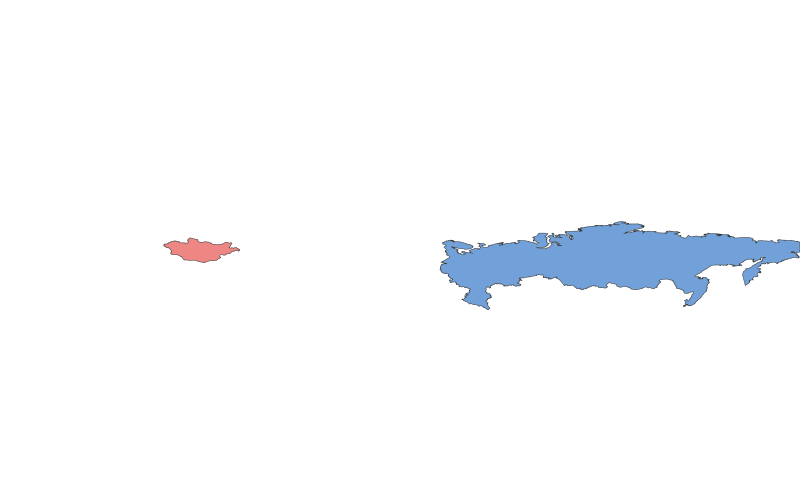Mongolia vs. Russia: A Geographical Comparison

Comparison Table
| Category | Mongolia | Russia |
|---|---|---|
| Location | Landlocked in East Asia | Spans Eastern Europe and North Asia |
| Size | 1.56 million km² | 17.1 million km² (largest country) |
| Climate | Continental (extreme temperatures) | Diverse (Arctic to temperate) |
| Natural Resources | Coal, copper, gold | Oil, gas, timber, minerals |
| Urban Development | Sparse, Ulaanbaatar dominant | Moscow, St. Petersburg major hubs |
| Transportation | Limited roads, reliant on railways | Extensive rail and road networks |
Description
Mongolia
Mongolia, a landlocked nation in East Asia, is known for its vast steppes and nomadic culture. Historically, it was the heart of the Mongol Empire under Genghis Khan. Today, its economy relies heavily on mining (coal, copper, and gold) and agriculture. The capital, Ulaanbaatar, is the cultural and economic center, while rural areas remain sparsely populated. Mongolia's climate is harsh, with cold winters and short summers, shaping its traditional pastoral lifestyle.
Russia
Russia, the world's largest country, spans two continents (Europe and Asia) and boasts diverse landscapes, from tundra to forests. It has a rich history as a superpower, from the Tsarist era to the Soviet Union. Economically, it is a global leader in energy exports (oil and gas). Major cities like Moscow and St. Petersburg are cultural and political hubs, while Siberia remains underdeveloped. Russia's transportation network is extensive, including the Trans-Siberian Railway, but its climate varies drastically, from Arctic cold to temperate zones.